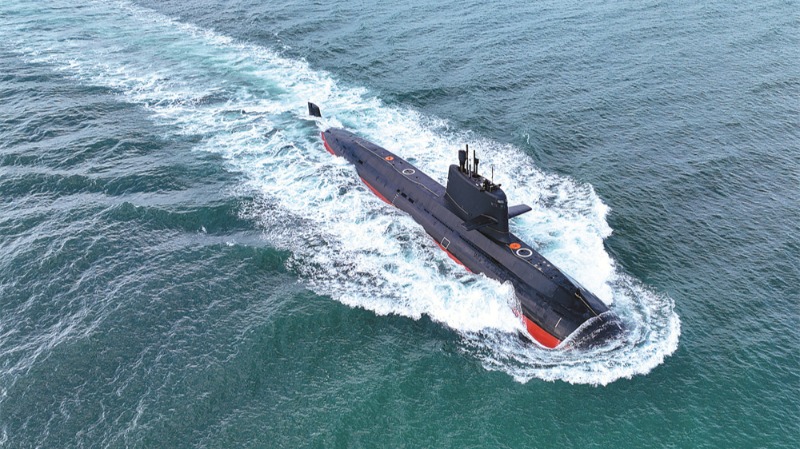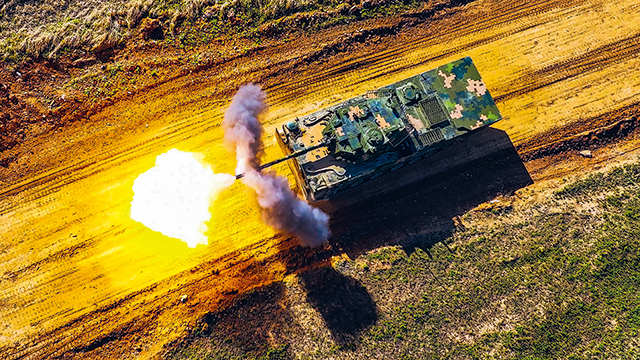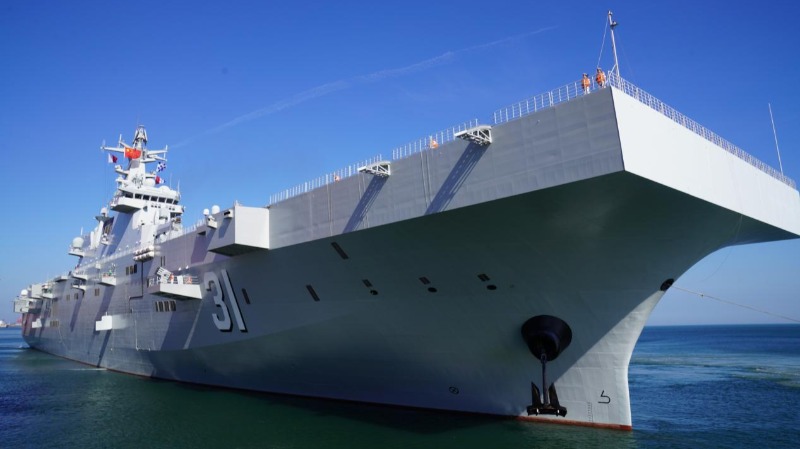By Fang Xiaozhi
French President Emmanuel Macron announced at a press conference on February 17 that the divergences between France and Mali's transitional government and the current political and legal conditions in Mali have made it impossible for France to continue carrying out effective anti-terror operations in the country. Therefore, he had decided to coordinate with French allies and withdraw military resources from there. A plan on how to continue the anti-terror operations in West Africa will be worked out before June this year.
Mali has been ravaged by poverty, armed conflicts and natural disasters in recent years, where extremist and terrorist organizations including Al Qaeda and Islamic State (IS) have constantly waged attacks and stirred up conflicts. Starting to send troops to Mali in 2013, France launched the massive Operation Barkhane in August 2014, fighting side by side with Sahel G5, including Niger, against extremist and terrorist organizations.
In August 2020, military forces staged a mutiny in Mali and formed a transitional government, whose hostility toward French and European soldiers there has led to the deterioration of its relations with France. In June 2021, Paris announced to slash its troop deployments in the Sahel region and instead focus on supporting local troops' anti-terror operations, but would maintain its military presence in the region by dint of participation in Task Force Takuba. On January 28, 2022, French foreign minister Jean-Yves Le Drian called the transitional government in Mali "illegal", which in turn demanded on January 31 that the French ambassador to Mali leave the country within 72 hours, the very same day when Paris called back its ambassador. In a sense, France's military withdrawal was the result of the escalating conflicts between the two countries.
Unsatisfactory results of anti-terror operations are an important reason for France's pullback of troops. French troops have been fighting in Mali for nine long years, burning an astronomical amount of money without achieving equally impressive results. Instead of stemming the so-called Jihadist movement, Paris has witnessed terrorism grow in scale and intensity in the region – losing tens of lives in the process.
Overall, France's withdrawal of troops from Mali signifies a significant about-face in its West African strategy and will add many uncertainties to regional security. The first to bear the brunt is Mali and the Sahel region. As Macron pointed out, Al Qaeda and IS’ branches have taken the Sahel region and the Gulf of Guinea as the priority area for expansion. Once the security situation in Mali worsens, terrorism is sure to diffuse, then more refugees will flee West Africa and swarm into other regions and Europe, leading to another refugee crisis in the continent.
Paris' decision will also affect the 15,000 troops of the United Nations Multidimensional Integrated Stabilization Mission in Mali (MINUSMA) as well as the normal functioning and follow-up actions of the EU troops stationed there. These forces are vital for maintaining security and stability in current Mali and Sahel region, and French troops have been responsible for providing medical, air and emergency support to them. German Defense Minister Christine Lambrecht said France's withdrawal has made it unlikely for her country to continue the mission within MINUSMA, and London also said it needed to reconsider whether to let British soldiers continue carrying out missions within MINUSMA.
Situated at the center of violent activities in the Sahel region and home to the branches of both Al Qaeda and IS, Mali is critical for the security in West Africa, or entire Africa really. It's hard to tell whether France's existing military presence in the Sahel region will work well and how the security situation there will evolve, but one thing for sure is that the anti-terror actions in West Africa will face greater risks and challenges.
(The author is an associate professor from the College of International Studies, National University of Defense Technology)


















